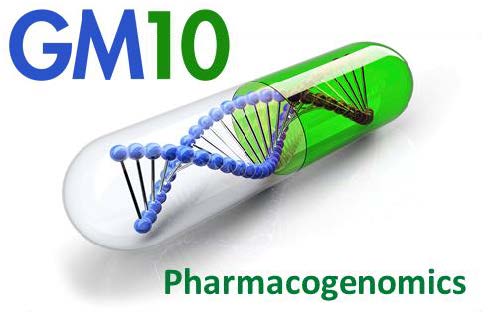Last updated: May 02, 2017
May 2 2017 Nhgris Genomic Medicine Working Group Illuminating Medicines Future
The Genomics Landscape
NHGRI's Genomic Medicine Working Group - Illuminating Medicine's Future
May 2, 2017
 Last month, NHGRI celebrated the biggest 'holiday' of the year for genomics - DNA Day. Using social media and in-person events, we reached students and life-long learners across the globe and facilitated discussions about genetics and genomics. For example, I enjoyed participating in our Twitter Chat (#DNADay17) that featured NASA astronaut Dr. Kate Rubins and NIH Director Dr. Francis Collins discussing applications of genomics in space exploration. To see the archived Twitter conversation, use the @DNAday handle. We were pleased to hear about other major DNA Day programs around the country, illustrating how this annual event has become an important part of our field.
Last month, NHGRI celebrated the biggest 'holiday' of the year for genomics - DNA Day. Using social media and in-person events, we reached students and life-long learners across the globe and facilitated discussions about genetics and genomics. For example, I enjoyed participating in our Twitter Chat (#DNADay17) that featured NASA astronaut Dr. Kate Rubins and NIH Director Dr. Francis Collins discussing applications of genomics in space exploration. To see the archived Twitter conversation, use the @DNAday handle. We were pleased to hear about other major DNA Day programs around the country, illustrating how this annual event has become an important part of our field.
This month's The Genomics Landscape features stories about:
- NHGRI's Genomic Medicine Working Group - Illuminating Medicine's Future
- Inter-Society Coordinating Committee for Practitioner Education in Genomics
- Towards Broader Use of Scientific Preprints
- NHGRI Short Course in Genomics: Nurse, Physician Assistant, and Faculty Track Applications Open
All the best,
Eric
NHGRI's Genomic Medicine Working Group - Illuminating Medicine's Future
Early this month, genomic medicine researchers, clinicians and other experts will gather in Silver Spring, Maryland as part of the latest edition in a series of meetings centered around the challenges of bringing genomic medicine into routine clinical practice (see the meeting webcast here live on May 2 and 3).
The ten 'Genomic Medicine meetings' held to date are one example of the productive work of the NHGRI Genomic Medicine Working Group (GMWG), a designated working group of the National Advisory Council for Human Genome Research. To help establish the Institute's extramural portfolio of genomic medicine research, the GMWG was constituted shortly after the publication of the Institute's 2011 strategic plan. The group was charged with advising NHGRI about opportunities and challenges in genomic medicine implementation, especially in light of the new, more clinically oriented goals articulated in the 2011 strategic plan.

The theme of this month's 'Genomic Medicine 10' Meeting is implementing pharmacogenomics - the study of how genomic differences among individuals influence their response to medications. As with the past nine Genomic Medicine meetings, the goals of this gathering are to review past and ongoing research efforts and to establish what future research is needed to facilitate broader efforts in genomic medicine implementation. More specifically, the Genomic Medicine 10 meeting will survey programs that are currently implementing pharmacogenomics, review the field's latest advances, and develop a strategic framework for implementing pharmacogenomics on a larger scale.
Apart from coordinating Genomic Medicine meetings and, in some cases, overseeing the publication of meeting summaries (e.g., from Genomic Medicine 9, "From Bench to Bedside"), the GMWG also provides more general advice about NHGRI's genomic medicine research programs. These include a number of named initiatives, such as Clinical Sequencing Exploratory Research (CSER), Implementing Genomics in Practice (IGNITE), Newborn Sequencing in Genomic Medicine and Public Health (NSIGHT), Electronic Medical Records and Genomics (eMERGE), and Clinical Genome Resource (ClinGen), along with the NIH Common Fund's Undiagnosed Diseases Network (UDN).

Finally, the GMWG has also developed a curated resource of research publications related to genomic medicine in areas such as clinical implementation, pharmacogenomics, oncology, genome sequencing, disease-based findings, and policy. Overall, the GMWG represents an excellent example of how NHGRI can partner with members of the genomics community to think critically and strategically in tackling difficult problems and in developing an ever-improving research agenda.
More from The Genomics Landscape:
Inter-Society Coordinating Committee for Practitioner Education in Genomics
A summary of the most recent meeting of the Inter-Society Coordinating Committee for Practitioner Education in Genomics (ISCC) is now available. The focus of this meeting was to share needs, interests, and activities among member organizations, and to learn about opportunities for funding provider-education activities. Representatives from member organizations discussed ways to facilitate genomics education. Ideas included the use of professional societies and conferences, local networks, buddy systems, electronic consultation, and continuing medical education (CME). Ideas for creating new ISCC Working Groups were also discussed, along with the challenges of producing clinical genomic reports that are easily understood by non-genomics practitioners. For more information on the ISCC, see genome.gov/27554614/intersociety-coordinating-committee-for-practitioner-education-in-genomics-iscc//.
Towards Broader Use of Scientific Preprints
In May 2016, funding agency representatives, preprint server organizations, and researchers met to coordinate efforts for making biomedical research manuscripts (i.e., preprints) more broadly available prior to formal publication. As the pace of biomedical research has accelerated, several 'preprint servers' have been established to facilitate the dissemination of scientific information more rapidly. These have been largely modeled after a preprint server established many years ago by the physics research community (arXiv). The May 2016 meeting was sponsored by ASAPbio, and a summary document from that meeting was recently released ("Principles for Establishing a Central Service for Preprints: a statement from a consortium of funders"). The described principles pertain to governance, community support, open access, scholarly standards, leveraging existing resources, software, ease of use, sustainability, and cost effectiveness. Of particular relevance, NIH has now issued a notice encouraging the use of preprints and describing reporting requirements for preprint and other interim research products.
NHGRI Short Course in Genomics: Nurse, Physician Assistant, and Faculty Track Applications Open
Applications are now being accepted for the 2017 NHGRI Short Course in Genomics: Nurse, Physician Assistant, and Faculty Track. This track is for practicing nurses and physician assistants as well as for the educators of these practitioners. The Short Course will be held on the NIH campus starting in early August. During the first two days, participants will listen to lectures on genomics across the healthcare curriculum and the challenges of educating professionals about genomics. The last two days, participants will focus on the use of available resources and the implementation of successful academic and clinical strategies. Applications are due May 10. To apply, please see: genome.gov/shortcourse/healthprofessionals/
Spotlight on the All of Us Research Program
Precision Medicine Initiative aims to probe the 'dark matter' in genetic data: STAT posts a question-and-answer interview with Eric Dishman, director of the National Institutes of Health's All of Us Research Program. allofus.nih.gov
NIH & NHGRI News
FDA Allows Marketing of First Direct-to-Consumer Tests that Provide Genetic Risk Information for Certain Conditions
Johns Hopkins Center for Inherited Disease Research Receives $213 Million of New Funding
Upcoming Videocast
Eightieth Meeting: National Advisory Council for Human Genome Research- May 8, 2016
New Videos
Contemporary Clinical Medicine: Great Teachers Evolution, Biology and Rare Mendelian Phenotype - David Valle
Genomics Research
Creative Minds: A New Mechanism for Epigenetics?
NHLBI Stem Cell Consortium Provides New Insights into Genetics of Heart Disease, Other Conditions
Study Finds Genetic Basis for Drug Response in Childhood Absence Epilepsy
Gene Silencing Shows Promise for Treating Two Fatal Neurological Disorders
NIH Researchers Trace Origin of Blood-Brain Barrier 'Sentry Cells'
Notable Accomplishments in Genomic Medicine
Missing Genes Point to Possible Drug Targets
Researchers Begin to Understand ADHD Genes with Help from Affected Families
Rare "Knockout" Gene Mutations in Humans Help Scientists Determine Gene Function
RNA Sequencing Applied as a Tool to Solve Patients' Diagnostic Mysteries
Funding Opportunities
Integrative Computational Biology for Analysis of NHLBI TOPMed Data
2018 NIH Director's Pioneer Awards
2018 NIH Director's New Innovator Awards
2018 NIH Director's Transformative Research Awards
2018 NIH Director's Early Independence Awards
Secondary Analysis and Integration of Existing Data to Elucidate the Genetic Architecture of Cancer Risk and Related Outcomes - R01 & R21
Funding News
Reporting Preprints and Other Interim Research Products
Past editions of The Genomics Landscape
To receive email updates, sign up for The Genomics Landscape Listserv.
To suggest future topics, please send an e-mail to NHGRILANDSCAPE@MAIL.NIH.GOV
Posted: May 2, 2017
